Pamamalo: A Tradition to Forget
Taguig City, Philippines
In the Philippines, pamamalo (corporal punishment) is one of the widely used methods to discipline a child. It is the act of using physical punishment, typically through the use of hand or household objects, often accompanied by scolding to correct a child’s misbehaviour.
Contrary to the belief that this method is effective, multiple studies have shown the ineffective and harmful outcomes of pamamalo. The practice triggers harmful psychological and physiological responses; pain, sadness, fear, and anger. It can desensitise children to violence and damage family relationships (World Health Organization, 2021).
The long tradition of pamamalo was reported to be more frequent and severe during the 1900s and early 2000s. In the present, despite positive parenting approaches promoted by the government and child rights advocates across the country, the practice of pamamalo persists in Filipino households.
According to the United Nations Children’s Fund (UNICEF), approximately 20 million, or 59 percent of the 33.4 million children aged 1 to 14 have experienced violent discipline in the Philippines in the past month. 1 in 4 mothers and other guardians taking care of their children believe “physical punishment is necessary to raise and educate children properly.”
In spite of the Philippines 2012 commitment to the international community to prohibit corporal punishment, this data suggested very little had changed (Inuirer. Net, 2024).
At the core of this issue is parenting. Commonly in a Filipino household, mothers take care of their children. To be a woman and a mother in a community can impose great challenges that can affect parental relationships, such as financial struggles, mental health problems and domestic violence. These factors can make them vulnerable to parenting stress. Many mothers will also themselves have experienced violence as children.
However, with proper support and parental guidance, all parents also have the power to create a safe fostering environment for their children. Home plays a crucial role in the overall development of a child, and it should be the first place that they feel safe from any form of violence.
My photo essay for ‘Safe’ explores this theme, highlighting common household objects used to induce violence. It aims to understand how local communities can foster a safe household by breaking the cycle of pamamalo tradition.
In a community within Barangay Hagonoy, a densely populated area in Taguig City, Philippines, three mothers engaged in an open conversation about the pamamalo tradition. Subsequently, the photography essay explores each mother’s lived experience regarding this tradition and their willingness to break the cycle, and shift to a more effective and positive parenting approach themselves.
*Names have been changed in this Photo Essay.
The street of St. Peter* serves as the main route for pedestrian and motorcycles to travel from their home to their workplace, the local market, and school.
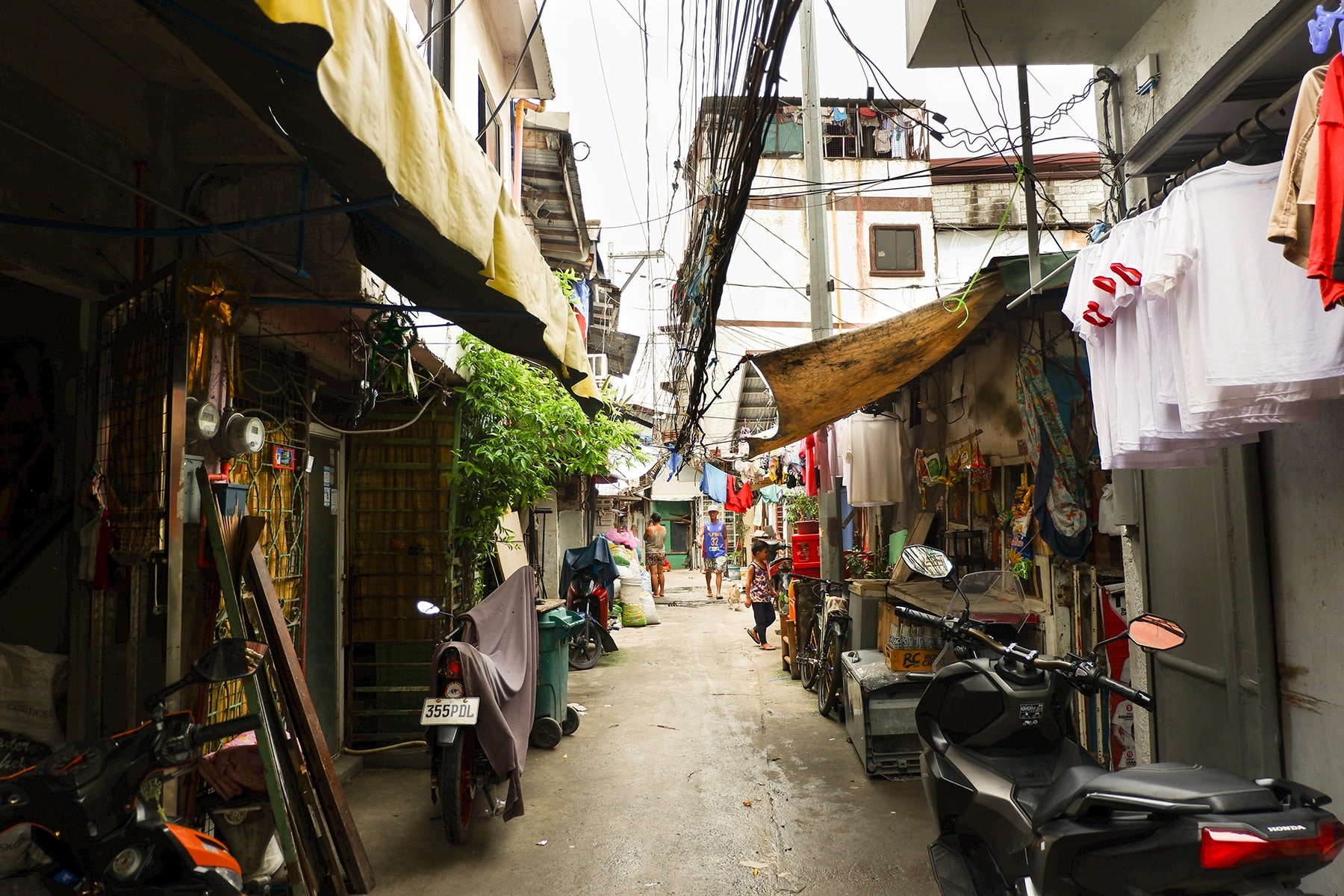
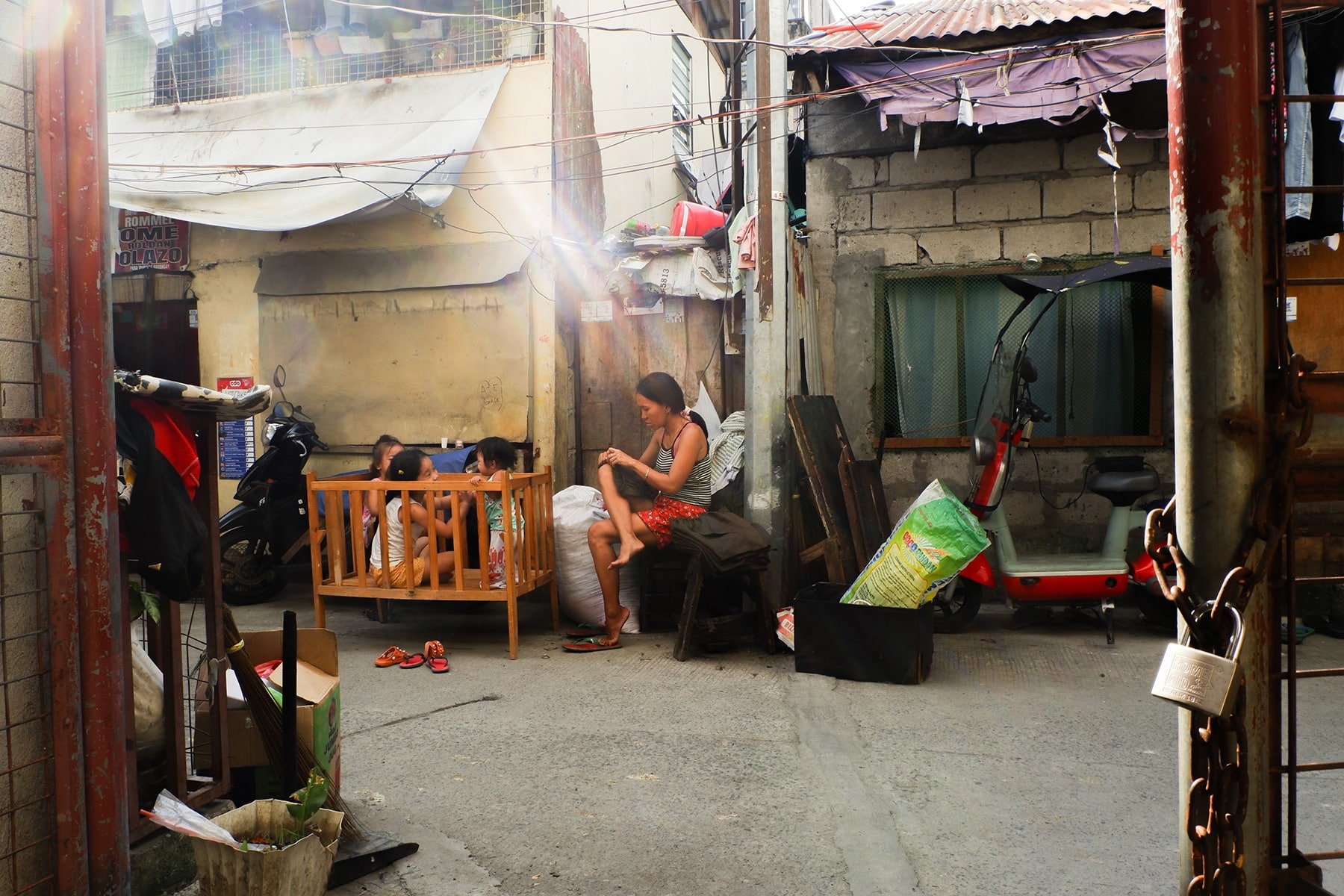
Sabel*, 30 works along the busy street of St. Peter. She is the only one working and taking care of her five children. “I feel the stress sometimes, but stress will never go away—it is part of life” Mrs. Sabel said.
Sabel trim shorts for over 8 hours a day and earn an average of 700 to 1000 pesos per three sacks of trimmed shorts.
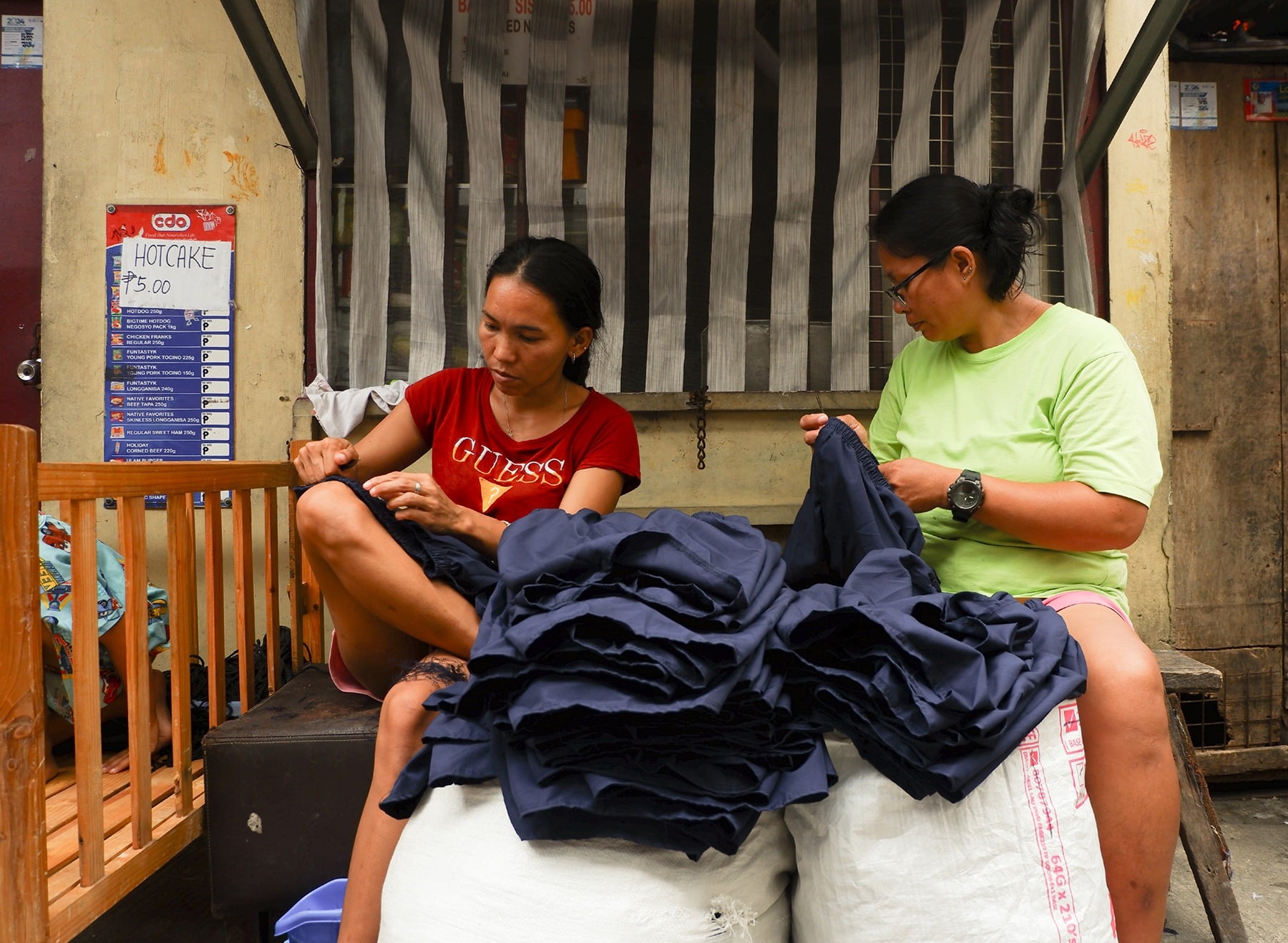
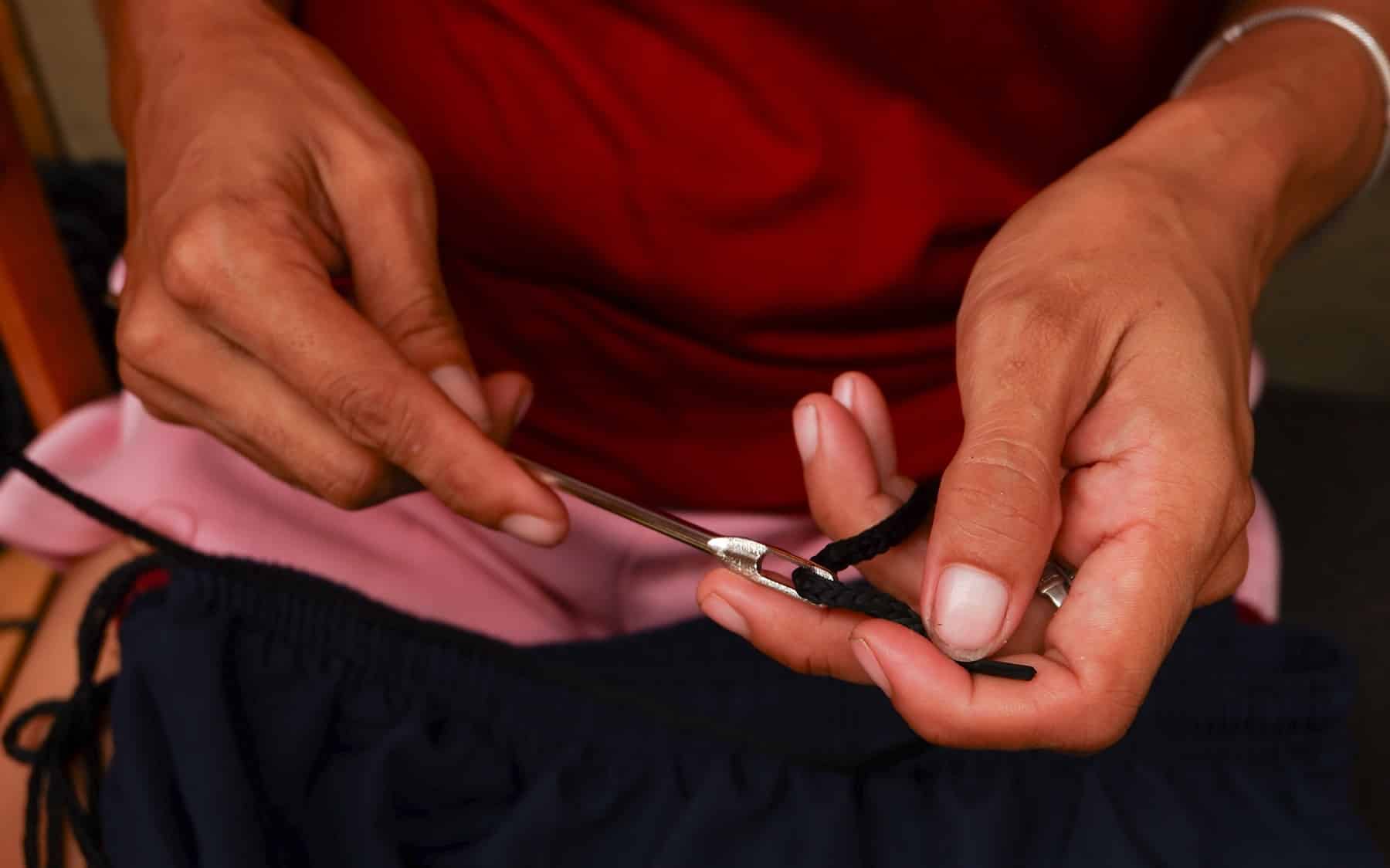
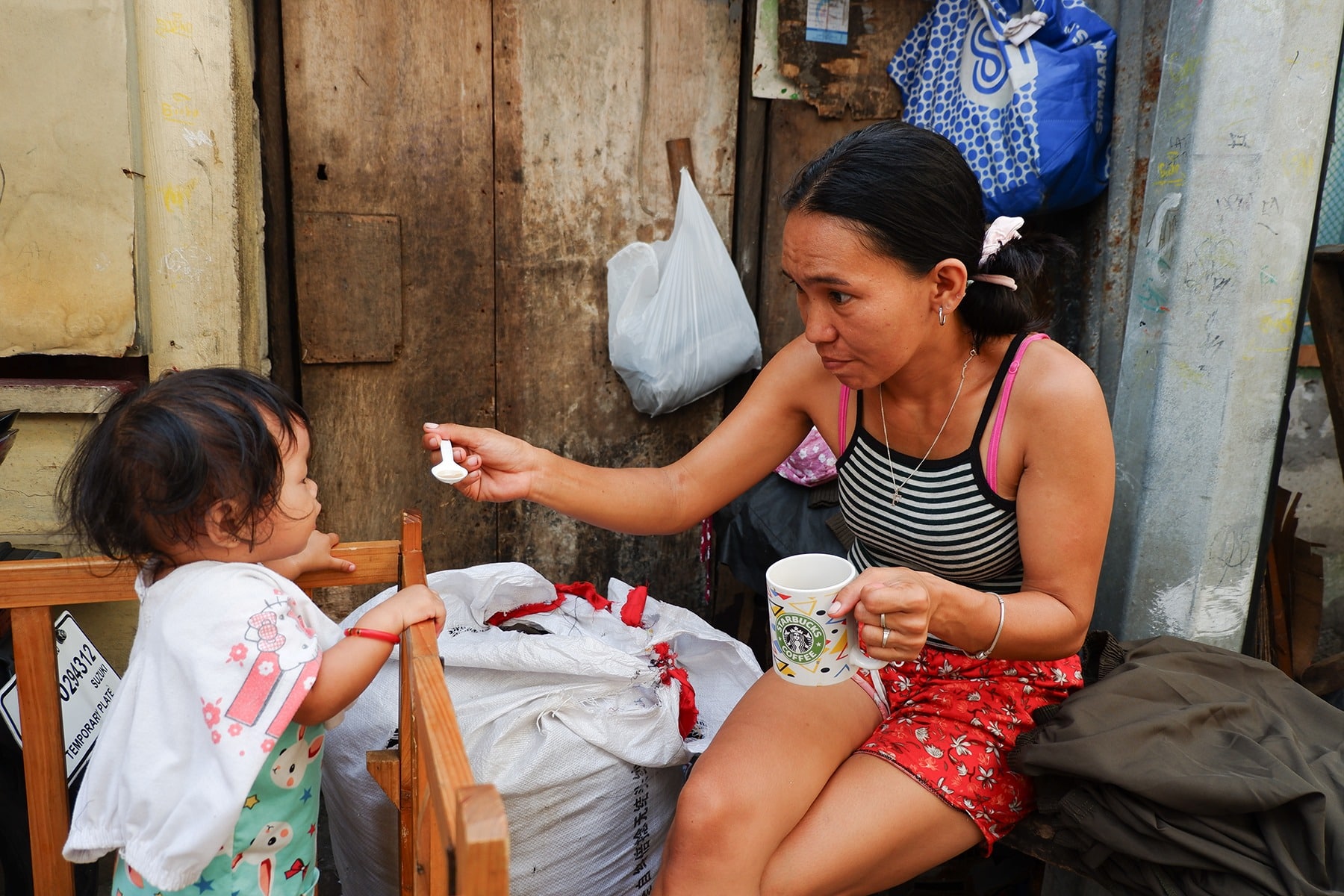
Sabel feeds her baby while working. According to her, parenting is hard especially if you are doing it alone. When she was a child the discipline she received from her parents was being hit by a belt, dos por dos (wood), and metal rod all over her body. Now that she is a parent, she doesn’t want her child to experience the same but her kids are stubborn and doesn’t listen to her sometimes. “I do not want to spank them but they are stubborn so I have to do it” Sabel added.
Despite the use of pamamalo, Sabel acknowledges, “It’s not good to always spank a child,” for it can make her child’s feelings distant from her. She believes that children may seek attention from strangers if they are not comfortable sharing their problems with their parents, and this is dangerous, especially for her daughters.
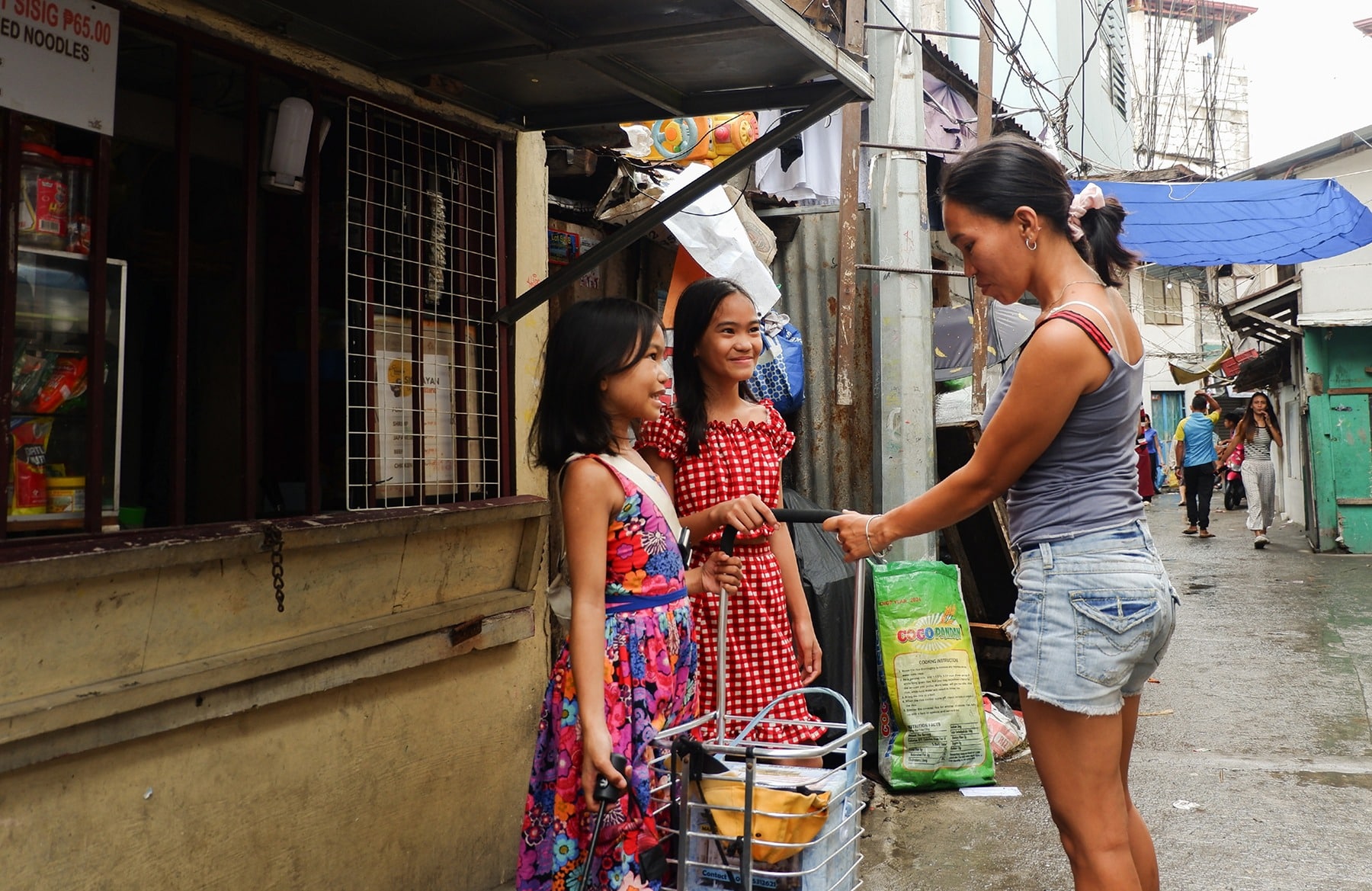

Mariana 35, has a small eatery business located on the busy street of St. Peter. Mariana and her partner wake up at 5:30 AM to prepare the food they will sell, and they make an average of 2,000 pesos a day.
Mariana has her daughter during a break while she sells in her eatery. Mariana was only 22 when she had her first child. She explained that she did not know what to do when she became a mother. “I do not know how I would handle them… sometimes it’s really hard to discipline my children because they are very stubborn,” Mariana explains.
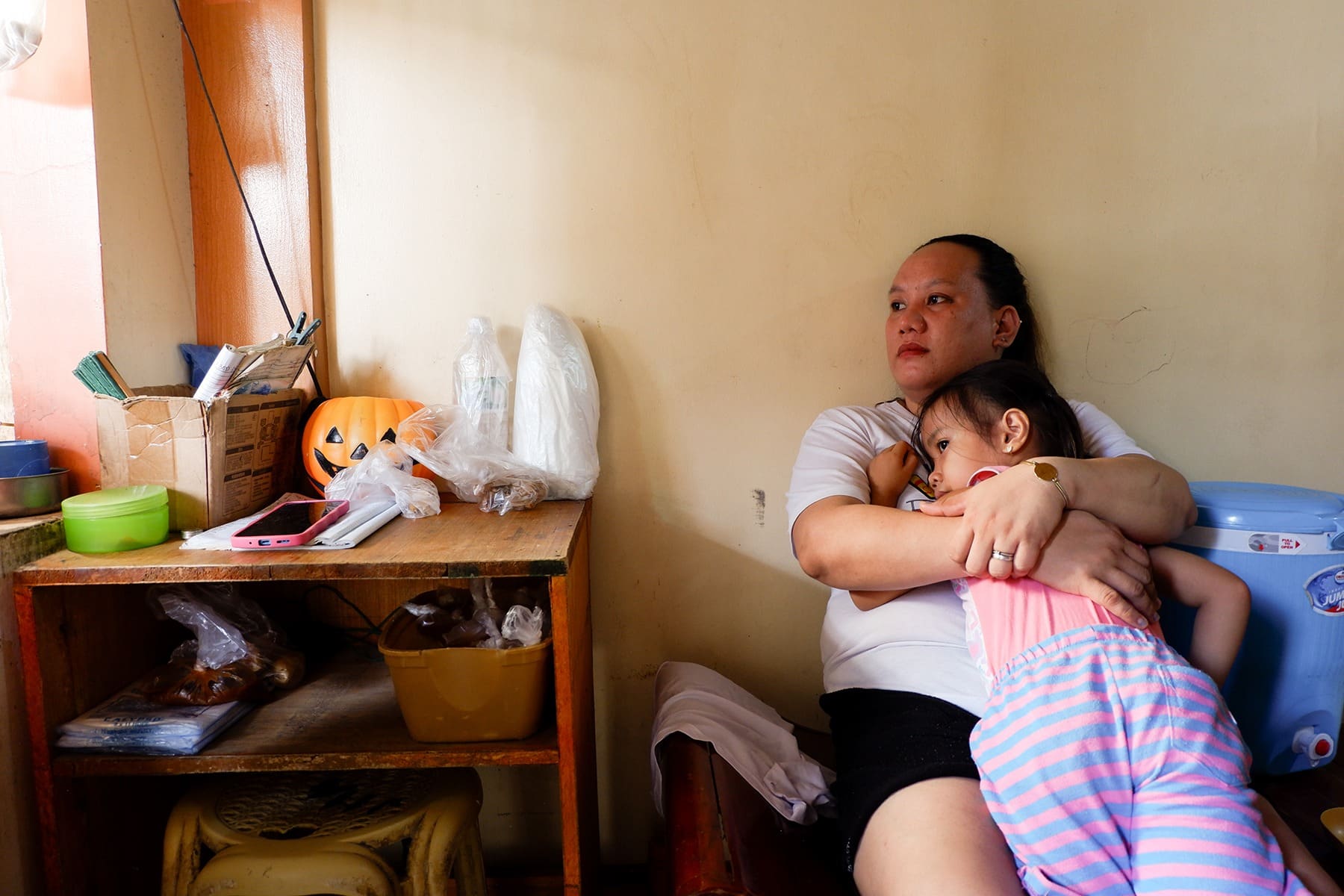
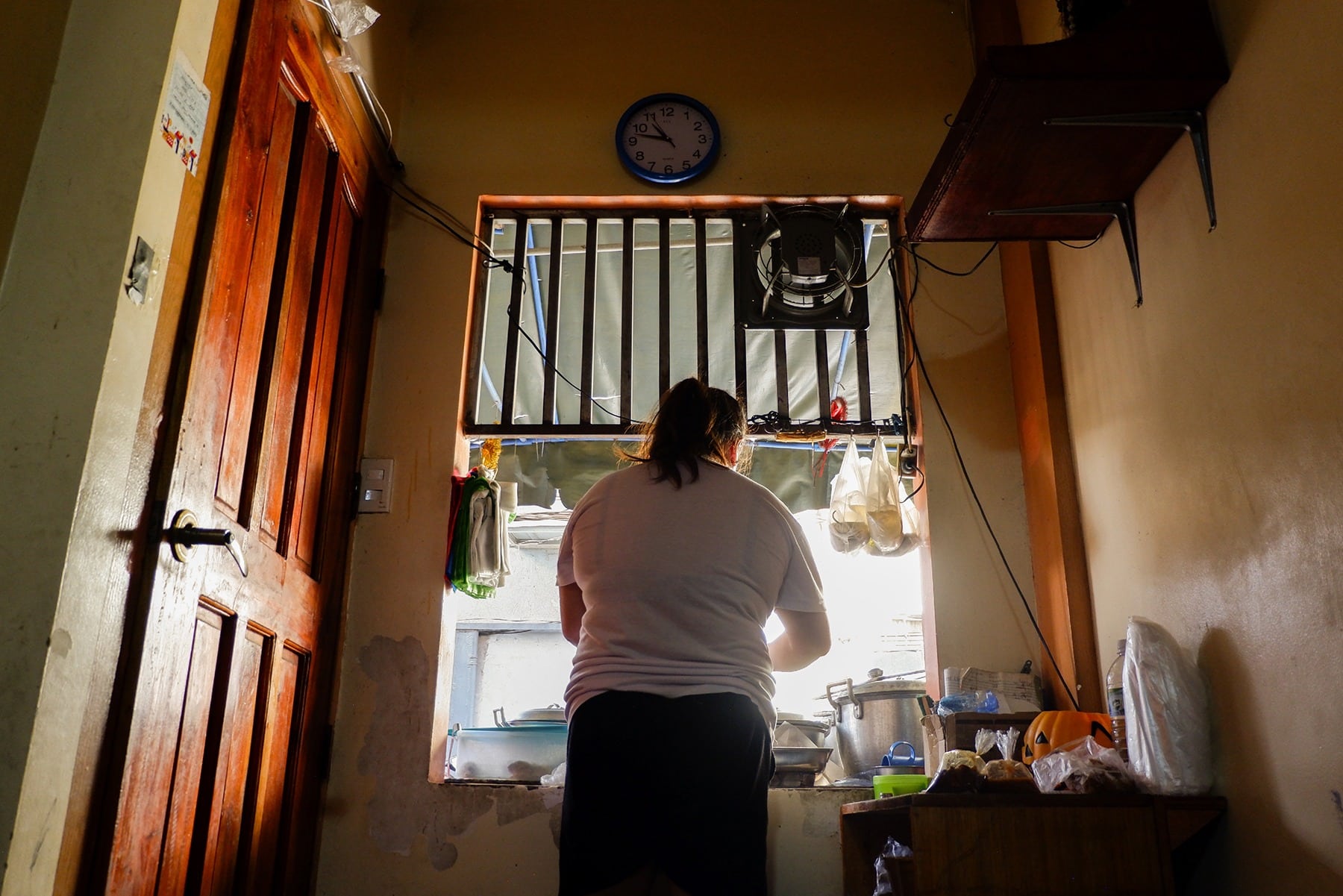
“When I was a kid, my father was very strict. He gets angry whenever I arrive home very late. There was a time when my father cut my hair because I was too stubborn. I had to put on a headband to cover the area. [pamamalo] It is painful but words cause more pain… sometimes they will curse at you. I’m still very close with my father, my life right now is okay because of his guidance” Mariana shared.
Mary*, 34, is feeding her two children their breakfast. Mary’s husband is an overseas worker, she’s the only one taking care of her children most of the time.
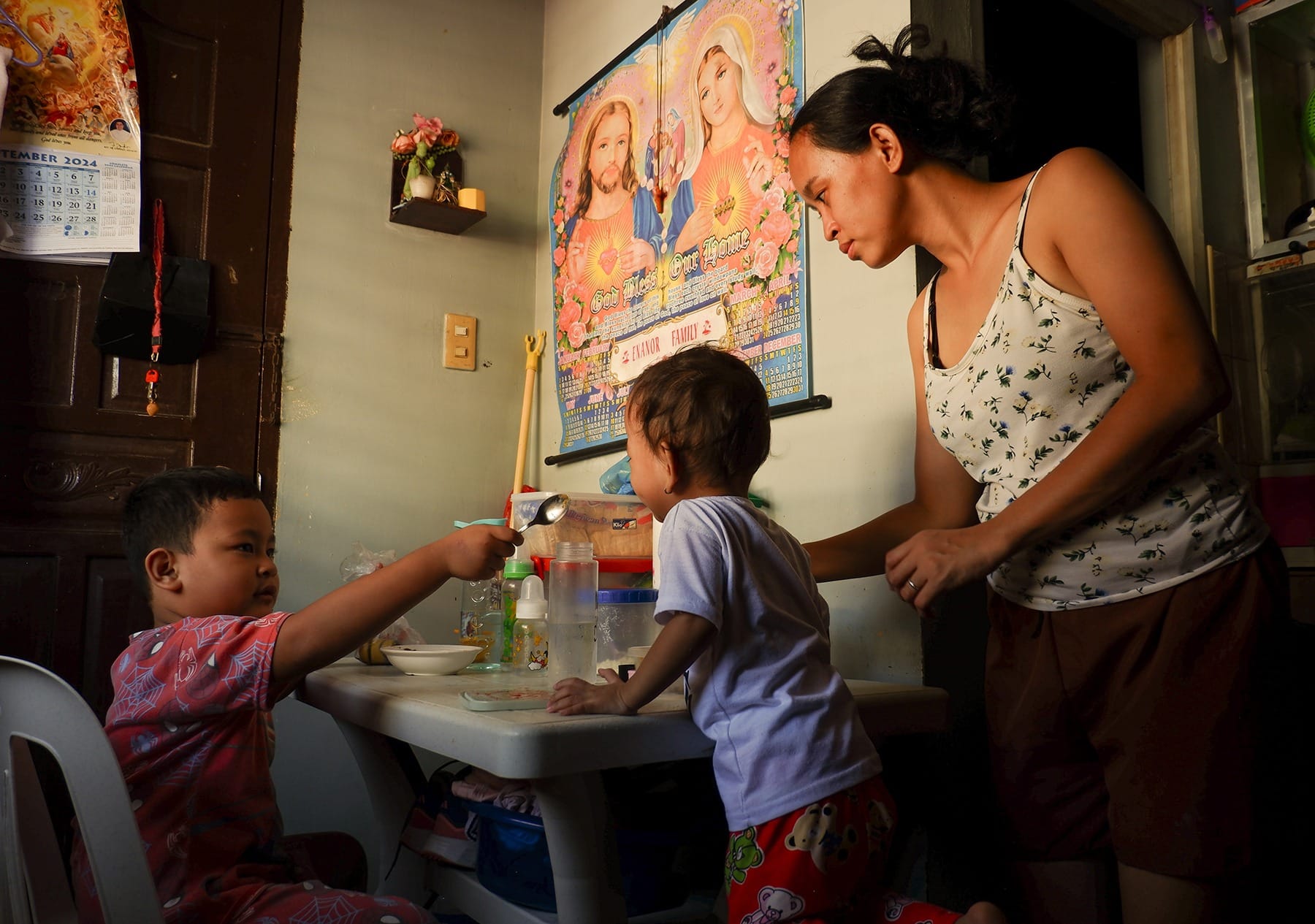
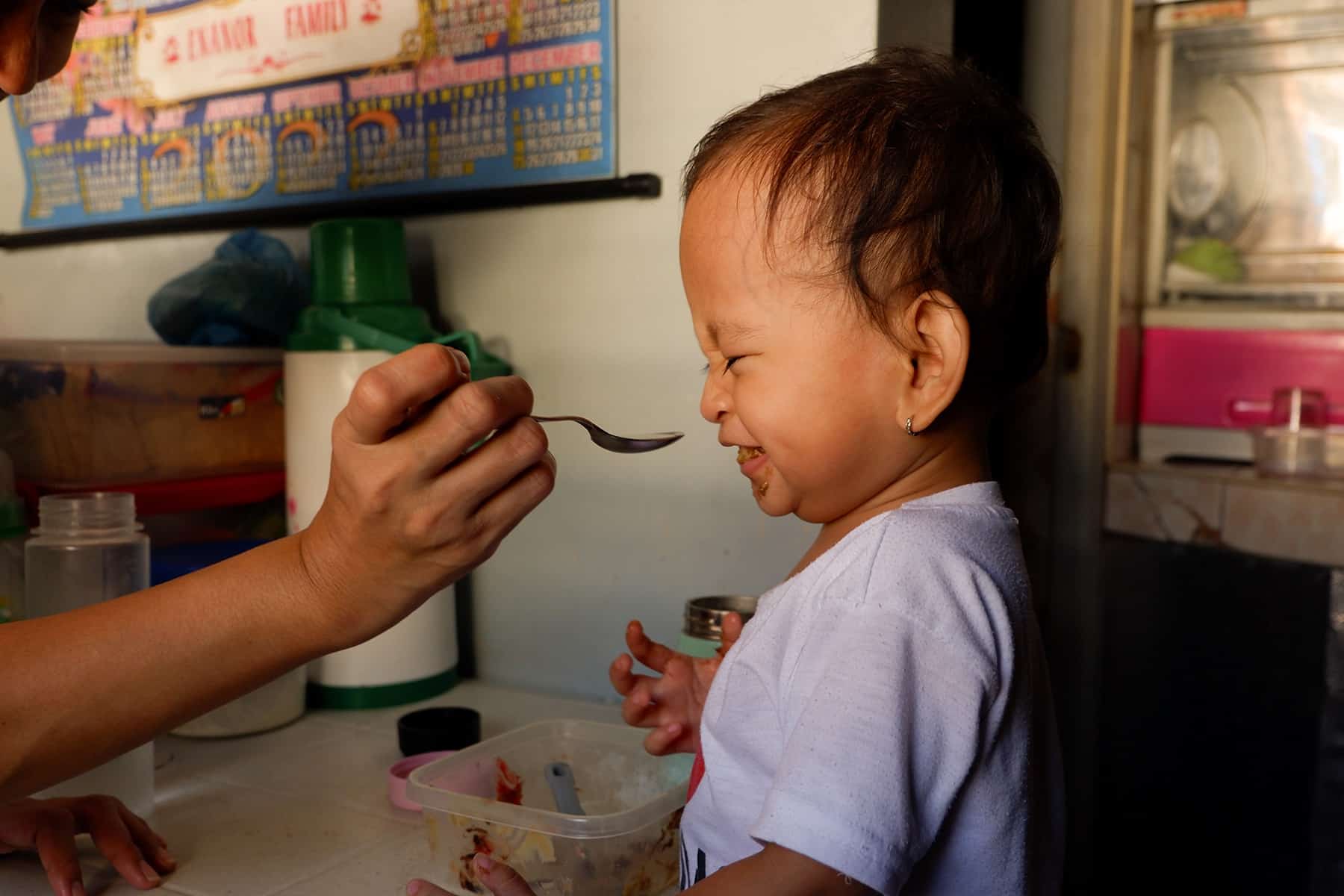
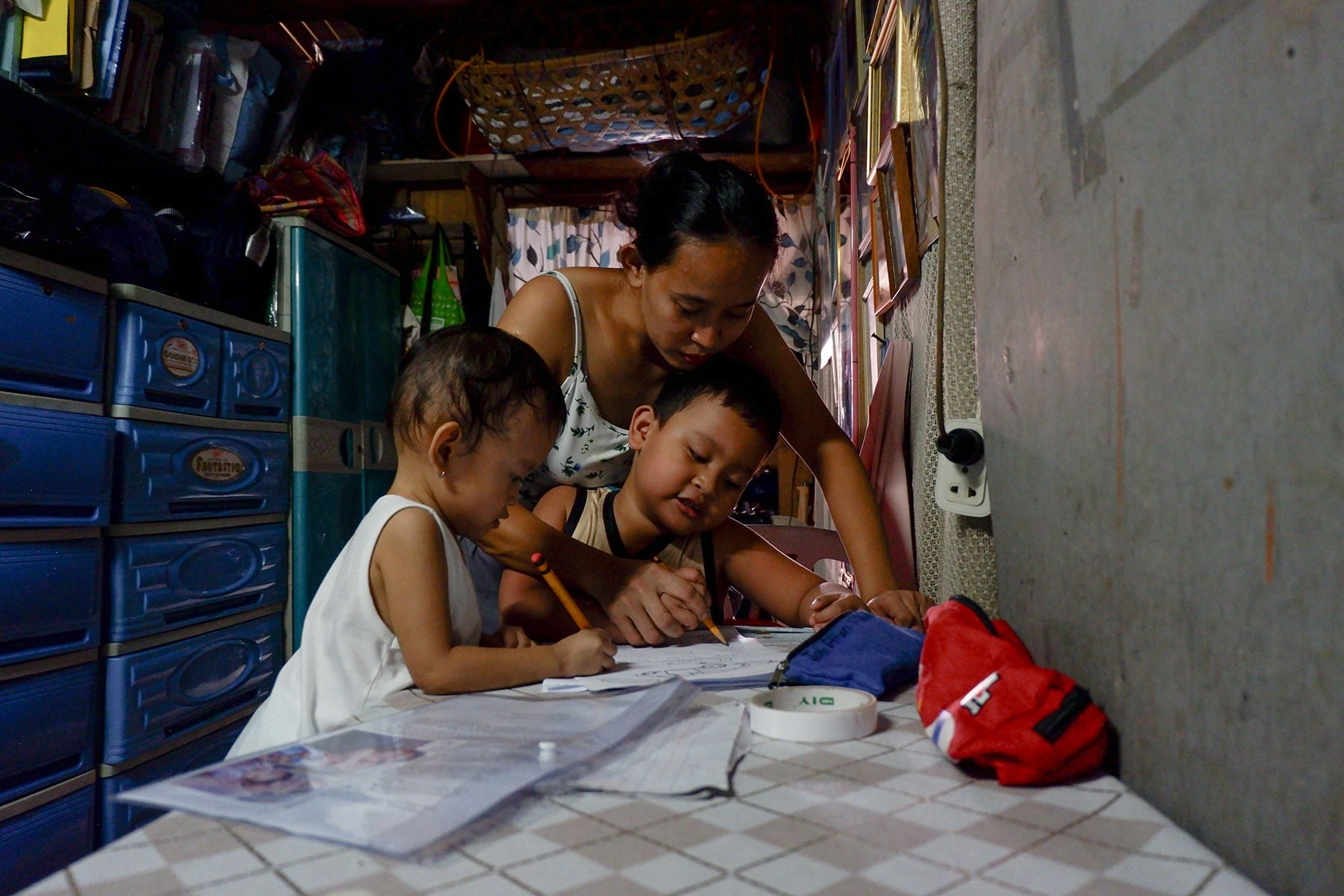
Mary helps her 4-year-old son, Chichi*, finish his schoolwork with her 2-year-old daughter, Ines*. Her parenting responsibilities and health problems add to her stress every day and there are times she unknowingly passes her frustrations to her children. “Once I spanked them with hands or slippers, afterwards that’s the only time I got to my senses and realized what I have done,” explains Mary.
Mary said her son, Tantan, is often the one being spanked because he is harder to discipline. “I feel guilty because I also realize my son does not deserve to be spanked. Of course, he’s only four years old and he does not understand it.” Mary added.
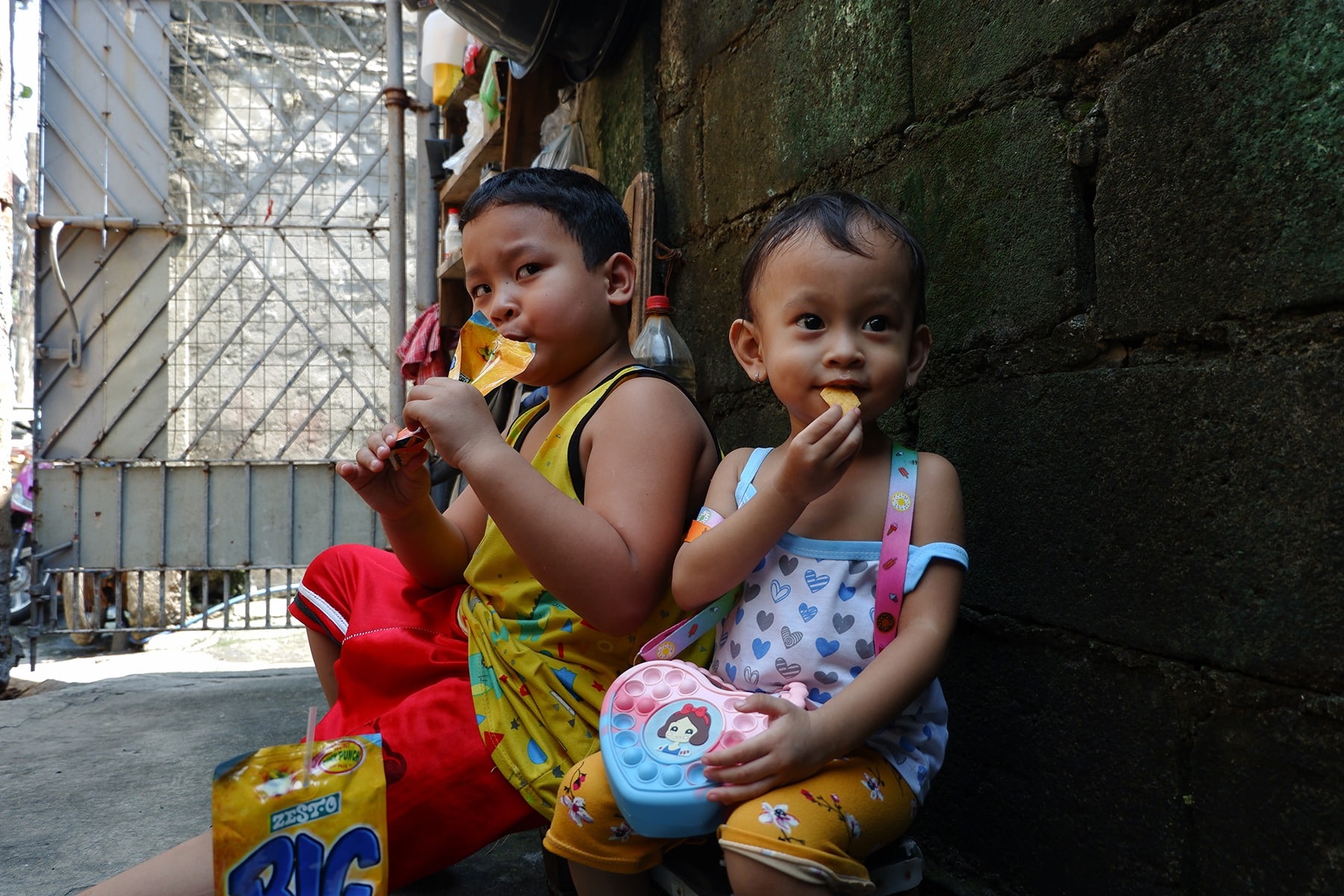
Albert C. Reyes is an Advertising and Public Relations student from the Philippines. He is a self-taught street photographer who takes pictures to show the raw and unfiltered reality of life. He also loves creating short films with ‘slice-of-life’ themes.
In the Philippines, physical violence within the home is still often used to discipline children. This is what motivated Albert to participate in the Safe Photography Project to help speak out to End Violence Against Children and Young People. He strongly believes that violence, in any form, is never a solution to discipline a child. Instead of good, this causes more harm and life-long traumatic experiences. He sees the Safe Photography project as a powerful tool to help promote safer environments for children and young people, breaking the chains of violence globally.